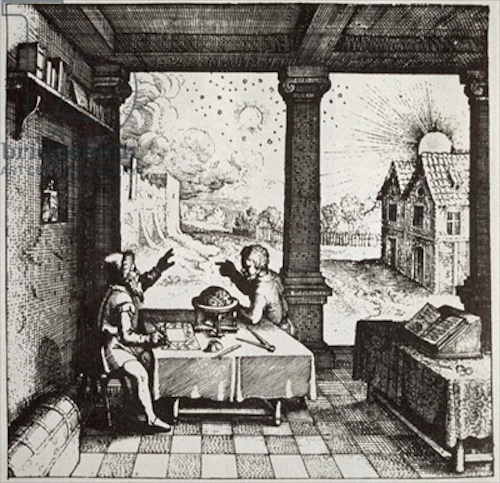 Culture & Ethics
Culture & Ethics
Science as Astrology: A Gene for, or Rather Against, Virginity?

As a kid we used to look forward to visits to the International House of Pancakes, where the highlights included not just pancakes but, just inside the entrance to the restaurant, a device like a gumball machine that dispensed horoscopes. For 25¢ the Starscroll device offered little scrolls the size of a cigarette, color-coded to the month and your sign. Scorpio was always orange.
The scroll, more detailed than what you’d find in a daily newspaper, included general prognostication and advice plus more specific forecasts as to your character, tendencies, challenges, etc. So this story from the world of science brings back unexpected fond memories.
Sometimes, in fact, it seems much of the most hyped research is about relieving us of the burden of personal moral responsibility. Except instead of it all being written into the stars, it’s written into your genes. You couldn’t ask for a better illustration than the hubbub around a paper out yesterday from Nature Genetics. A headline at Scientific American captures the gist: “Do Genes Time One’s Loss of Virginity?“
Get that — genes, not choice:
A person’s age at the onset of sexual behavior matters, because early sexuality and becoming a parent at a young age are linked to many measures of health and economic success. “If you look in [scientific] literature, relatively early ages at first sex and first birth have been associated with lower educational achievement, poorer physical health, poorer mental health — a complex web of negative stuff,” says John Perry, a geneticist at Cambridge who led the research, published Monday in Nature Genetics. Perry says he was particularly intrigued by the idea that something people think of as purely a matter of free choice would have a large contribution from genetics.
Yes, intriguing. More:
The team found that 38 specific regions of the genome contributed to the age at which people first had sex. Those regions roughly fell into two groups, Perry says: genes that act on reproductive biological processes such as estrogen signaling and genes that appear to play a role in behavior and personality. One gene that the team associated with early sexual behavior, CADM2, influences risk-taking behavior, and another, MSRA, leads to irritability. “We weren’t expecting to find this sort of thing when we started out,” Perry says.
They weren’t expecting it. They always have to say that, don’t they? We looked up CADM2 and found:
This gene encodes a member of the synaptic cell adhesion molecule 1 (SynCAM) family which belongs to the immunoglobulin (Ig) superfamily. The encoded protein has three Ig-like domains and a cytosolic protein 4.1 binding site near the C-terminus. Proteins b elonging to the protein 4.1 family crosslink spectrin and interact with other cytoskeletal proteins. Multiple transcript variants encoding different isoforms have been found for this gene. [Provided by RefSeq, Feb. 2012.]
We’re not sure how a variant of CADM2 could, as The Guardian puts it in another credulous article, “link an early start to one’s sex life with risk-taking behaviour and having a large number of children.”
It’s utterly arbitrary, not less so than adducing the day of your birth to predict romantic, economic, and other fortunes. All of this reads exactly like a horoscope. For a more sober take on the relationship between genes and you, see our current podcast over at ID the Future, “Dr. Jonathan Wells: Biology’s Quiet Revolution.”
Image: IHOP restaurant, interior, c. 1972, or no — that should be: Astrologer casts a horoscope, by Robert Fludd [Public domain], via Wikimedia Commons.
